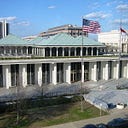Leandro: Background on Relevant Case Law and Statutes

Raleigh, N.C. — With two days to go until Judge David Lee signs an order attempting to force the executive branch to appropriate funds over the objections of the legislature, we thought it might be helpful to offer some important pieces of case law and statute to those covering this story.
What’s Going On
A 27-year old education lawsuit, commonly referred to as “Leandro,” will come to a head this week when a county-level trial judge will order North Carolina’s executive branch to withdraw $1.7 billion from the state’s General Fund and spend it on the judge’s preferred policy proposals. The legislature is not a party to the case, was not involved in developing the policy proposals the judge will order, and objects to what’s going on.
Why Does the Legislature Take Issue With This?
The legislature’s main objection is that the judiciary does not have the legal authority to decide how taxpayer dollars are spent and what policies get enacted into law. The legislature also disagrees with some of the budget and policy items the judge will attempt to order into law.
What Does the Constitution Say?
Article V, Section 7 of the North Carolina Constitution says: “No money shall be drawn from the State treasury but in consequence of appropriations made by law, and an accurate account of the receipts and expenditures of State funds shall be published annually.” An appropriation made by law is only possible through a vote of the General Assembly.
The Constitution is Really Old. What Have the Courts Said Recently About Appropriations?
In December 2020, the North Carolina Supreme Court decided Cooper v. Berger, a case centered on which branch of government can appropriate funds. Here’s what the court determined: “The appropriations clause of the North Carolina State Constitution provides that ‘[n]o money shall be drawn from the State treasury but in consequence of appropriations made by law, and an accurate account of the receipts and expenditures of State funds shall be published annually.’ N.C.Const. art. V, § 7(1). In light of this constitutional provision, ‘[t]he power of the purse is the exclusive prerogative of the General Assembly,’ with the origin of the appropriations clause dating back to the time that the original state constitution was ratified in 1776.”
The North Carolina Court of Appeals was equally clear in a 2018 ruling in Richmond Cty. Bd. of Educ. v. Cowell: “…the Separation of Powers clause prevents the judicial branch from reaching into the public purse on its own. Appropriating money from the State treasury is a power vested exclusively in the legislative branch and no money shall be drawn from the State treasury but in consequence of appropriations made by law.”
That Seems Pretty Cut and Dry. What Am I Missing?
You’re not missing anything. This is very cut and dry. The state Constitution and recent state Supreme Court precedent say only the General Assembly, not a court and not the executive branch, can appropriate state funds.
When Judge Lee orders the executive branch to withdraw state funds, he will be in clear violation of the Constitution and the law. That is why the legislature is unhappy with Judge Lee — his behavior is prompting something of a constitutional crisis.
Is There Any Other Law that Gives Judge Lee Authority to Act?
The order Judge Lee will sign does cite a state statute involving “budget adjustments.” The law contemplates the executive branch moving some money around within a single agency’s budget for a number of reasons, including a natural disaster or, yes, a court order.
Judge Lee’s order will ignore this part of the statute, though: “This section shall not be construed to authorize budget adjustments that cause General Fund expenditures, excluding expenditures from General Fund receipts, to exceed General Fund appropriations for a department.”
So Judge Lee’s order will violate the very statute it cites as its authority because: 1) Judge Lee’s order will require spending well above the General Fund appropriations for a department, and 2) Judge Lee’s order will require a blanket withdrawal from the General Fund, not a simple adjustment of already-appropriated funds within an agency.
